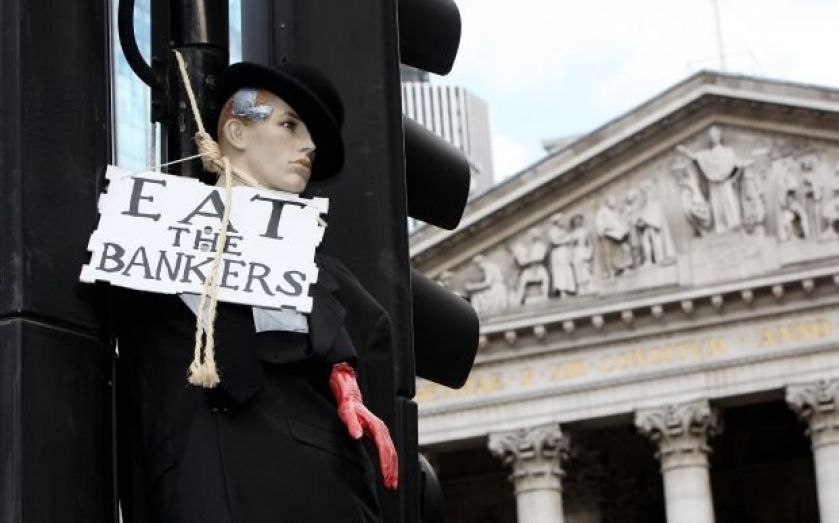Regulators beware. Your banker-bashing could end up harming us all – Bottom Line

Let’s face it. It’s not difficult to see why banker-bashing is an easy sport to play along with these days – what with all the bailout-grabbing, bonus-paying, Libor-fiddling, forex-meddling, PPI mis-selling, granny-mugging, and orphan-punching of recent years. I may have made up the last two, but you get the idea.
Little surprise, therefore, that few tears are shed when big fines are dished out to big banks, or when strict new regulations are proposed. Stories of such clampdowns are likely to simply reinforce the widespread belief that banks, and the bankers therein, deserve what they get.
Yet every punishment should fit its corresponding crime. It should not exceed the crime or, even worse, be applied for self-serving reasons. And regulations, similarly, should not come from a sense of vengeance, or for the sake of political point-scoring.
Some of the financial sector wrongdoings that have emerged in the last year or two are truly shocking. It’s imperative that a system is in place that can fairly judge suspected culprits and, if guilt is found, impose sufficient penalties.
Benchmark fixing is one such offence. The deliberate misleading of investors, either financial professionals or everyday banking customers, is another.
But other cases rightly raise the eyebrows of cynics.
Are the gargantuan US fines for sanctions not in any way driven by east coast political factors? And is this not also, to some extent, a case of dollar hegemony being exploited to enforce America’s foreign policy?
Are ringfences, state-commanded divestments, and a variety of transaction restrictions and taxes really the way to prevent another crisis?
It’s difficult to see how any of these political favourites would have made a big difference in the run-up to 2007.
British Bankers’ Association boss Anthony Browne is entirely right to warn of the unintended consequence of ill-thought-out regulations that often end up harming those at the bottom.
Regulators must beware falling prey to such effects, which will leave their successors in years to come with even greater headaches.
They must also beware the dangers of mission creep. The quest to devise a post-crisis regulatory structure is, unsurprisingly, becoming extremely drawn-out and fragmented.
There is a danger of adding more and more layers of new untested initiatives to an already ultra-complex web of red tape.
As the crisis showed, a messy financial sector affects us all.
The industry needs clarity and fairness – not so that it can be let off the hook, but so that the whole economy can be supported and helped to grow.